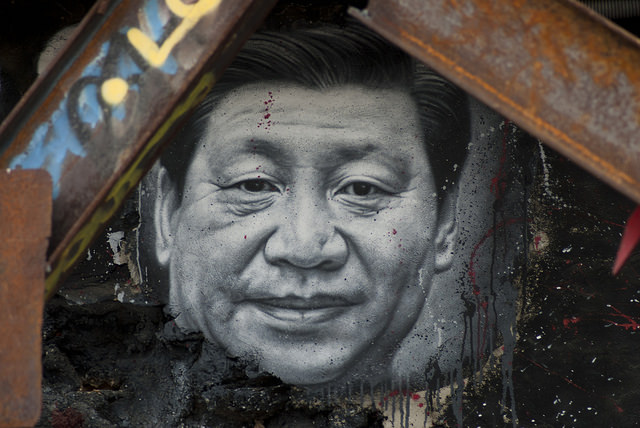
There’s something odd about the Australian view of the power and aims of China's President, Xi Jinping. We’re told that he has unprecedented and centralised authority. He’s using that power to, among other things, maintain China's claims beyond its internationally accepted borders, especially in the East and South China seas. That increases concerns in East and Southeast Asian states, and brings dangers to sea and air communications for maybe
60% of global trade, including Australian exports. The resulting military and security dangers for countries in the region are obvious.
The reality of Xi’s position may be more complex. He’s indeed a markedly active and purposeful leader, but he is also more than that. He assumed personal chairmanship not only of the senior committees dealing with State, foreign and domestic affairs, but ones on security matters and various aspects of fiscal policy, economics, production and of the Central Military Commission, which is the governing body of all branches of the military, naval, communications as well as air and space forces. While he clearly has a large number of reliable assistants, it must be doubtful how far—for all the recent administrative and command changes—he can personally supervise or control all the bodies that he now formally heads.
The most important of those bodies is, of course, the Chinese Communist Party (CCP) itself. It’s not only the political and social glue which alone holds together so large and varied a polity as China but it’s also the chief, if not sole, path for governmental promotion, status and wealth for its 85 million members. Its senior members play decisive roles, among other things, in China's efforts to change the structure of the economy. This is to move from the principles imposed by Mao's successor, Deng Xiaoping at the end of the 1970s, to a new reliance on higher domestic consumption, services, the development of infrastructure across the board and more sophisticated controls over Chinese production and trade, as well as a more complex and international role for China’s fiscal and banking systems as well as the Chinese currency, the Yuan.
In pursuing those aims, President Xi has launched a nation and party-wide campaign against the corruption which can, and often does, bedevil dealings with foreign firms and governments, especially with banks, major industrial enterprises as well as food and resource mining companies. Those dealings must support, and not be allowed to limit, the global spread of Chinese economic influence and the other claims and linkages that feature in China's longer-term plans. In dealing with the difficulties, MR Xi has at least one major domestic problem. Corruption, not just in commercial but in governmental and other matters, has been endemic in China for
some 3,000 years. That’s how officials, whether governmental, local or provincial, have normally advanced to wealth and standing. The President’s attempts to halt these practices, and therefore end some of the norms of Chinese society and politics, will continue to prove hugely unpopular in large segments of the CCP and the nation.
The anti-corruption campaign is therefore likely to run into great difficulties, though not all of them will be visible to outsiders, let alone the public. Few things are less transparent in China than the wishes and practices of senior officialdom in the CCP and major institutions like banks and, most particularly, within parts of the Peoples Liberation Army (PLA). Any demand for radically different practices may seem and be dangerous, especially to people who have themselves already gone through several stages of advancement. In that process, they’ll have gathered, or joined, groups of associates, supporters and reliable friends who have linked their own advancement in status and wealth closely to the person around whom the group was formed.
It’s true that Xi has been able to cement his own advancement, and alarm potential dissidents, by taking successful action in a number of spheres. One has been action against the man who was probably his most serious rival. It was Zhou Yongkang, a fellow member of the highest ruling body of the CCP, the Standing Committee of the Politburo, as well as the head of all police and security matters in China. Zhou appears to have been dismissed not only from his post but from the CCP as a whole. However, dismissing Zhou is one thing; dealing with the resentments of Zhou’s long-time supporters and allies, let alone others people who fear they ‘might be next’ could be quite another.
A second piece will comment on President Xi’s influence over, and supporters within, China’s economic and military power structures.
 Print This Post
Print This Post